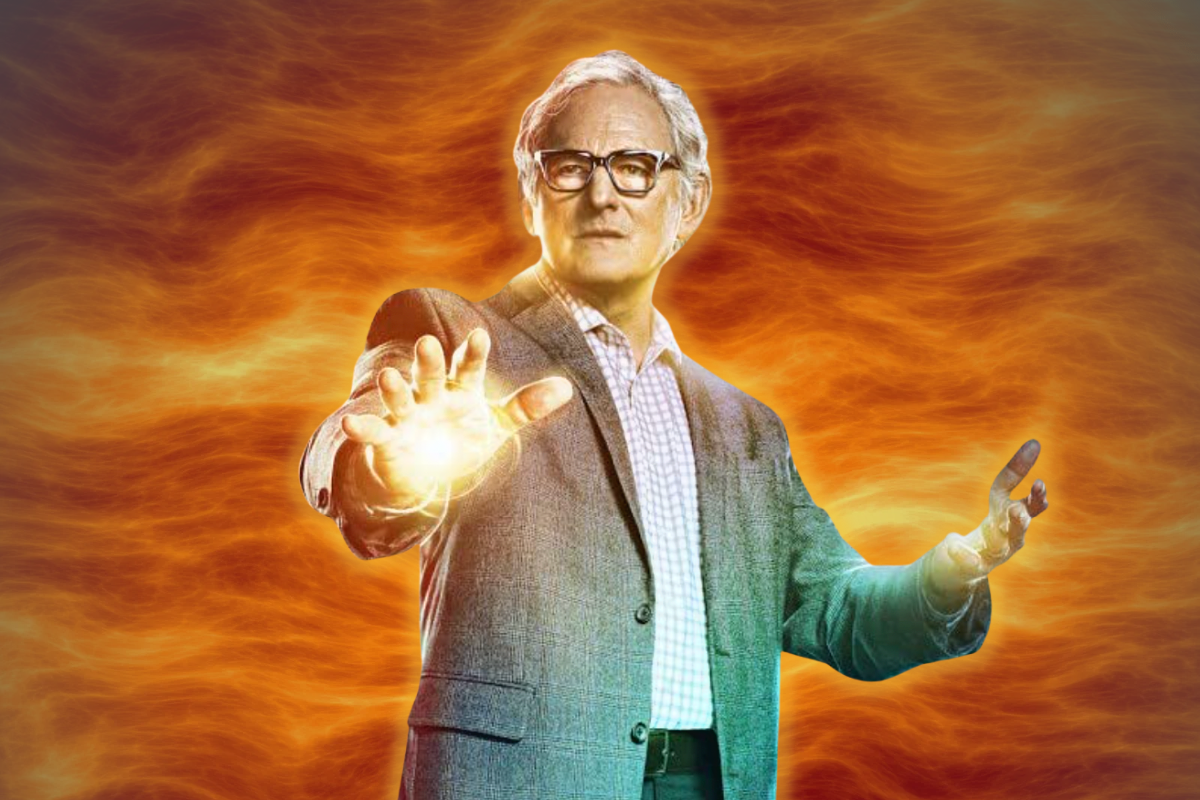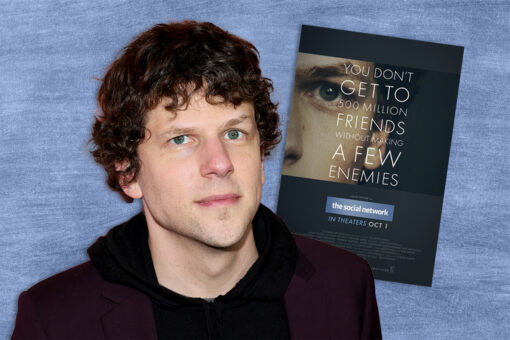Here’s a quick roundup of Jewish superheroes in comic books versus their onscreen portrayals: Kitty Pryde/Shadowcat is Jewish in the comics, but there’s no mention of her being so in the “X-Men” movies. Magneto is identified as Jewish from the very beginning of the first “X-Men” movie when he’s separated from his parents at the Auschwitz Concentration Camp, but in both his film iterations — McKellen and Fassbender — he’s played by non-Jewish actors. Same goes for the CW’s first Batwoman. Most recently, we had Oscar Isaac’s Moon Knight, but it took until the series’ penultimate episode to confirm that his Marc Spector persona is Jewish like in the comics.
All of this is to say that in the grand scheme of things, onscreen Jewish representation in superhero media has been rather lackluster.
However, for a short period of time, there was a small beacon of consolation in the form of Martin Stein from “Legends of Tomorrow,” which was part of the CW’s “Arrowverse” shared universe. Played by Jewish actor Victor Garber, Professor Martin Stein was introduced as a recurring character in the first season of “The Flash.” After a lab experiment gone wrong (on a city-wide scale), Stein merged with Ronnie Raymond (Robbie Amell), and the two became Firestorm, harnessing powers such as flight, projecting fiery nuclear blasts, and energy absorption.
At first, Stein’s and Raymond’s merger is unbalanced, but by the end of the season, they’re able to control their powers, merging and separating at will; they even help Flash defeat his nemesis, Reverse Flash. Early in the show’s second season, though, Raymond dies — and it’s soon revealed that without a person to occasionally fuse with, Stein, too, will die. So Flash’s team helps him find a suitable conjoiner: Jefferson “Jax” Jackson (Franz Drameh).
Following this, Stein and Jax become part of the main cast in “Legends of Tomorrow” when they, along with other recurring “Arrow” and “The Flash” characters, are recruited by Rip Hunter to board his time-traveling spaceship and be part of his crew.
The concept of the show was unique and intriguing when compared to other superhero series and movies at the time: Misfit heroes, who don’t really play a big role in their own present storylines, join together for adventures in the past and future to protect time.
Stein proved to be something very rare: a nuanced, interesting, well-developed onscreen Jewish superhero character. Aside from being a brilliant physicist, his father made Stein become a rabbi before sending him to MIT, and he knew some Hebrew. As the oldest member of the team, Stein was able to give sage advice and scientific support when needed. Meanwhile, his Firestorm partner, Jax, was young and reckless. This contrast made their characters develop over time as they grew to understand one another better; it also led to fun banter between the two whenever they merged and Stein was inside Jax’s head.
Stein was not without his faults, though. Initially, Jax didn’t want to join the crew, but Stein dragged him to the ship out of his own selfish desire to time travel. But he grew from his mistakes. When Stein traveled to the past, he met his younger self, whom he saw as arrogant and obnoxious — which led to self-reflection. Meeting his younger self also accidentally led to a time aberration that gave Stein and his wife a daughter, when previously they hadn’t had children.
Unfortunately, this beacon of representation soon had to dim its light — well, not so much “dim” as “crush and obliterate.” Early in the show’s third season in 2017, Jax and Stein started pursuing the idea of severing their Firestorm link or transferring Stein’s power over to Jax, so Stein could leave the team. It was reported that Garber would soon be leaving the show for the sake of his Broadway career (he played Horace Vandergelder in “Hello, Dolly!”); I imagined that this story development would allow the writers to give Garber a smooth exit. I was a bit disappointed, but I would have been content with a solid ending for Stein.
What ended up happening, though, was far, far worse. In 2017’s annual crossover event of the “Arrowverse” shows, the heroes fight against an invasion of Nazis from an alternate universe (“Earth-X”). During the crossover’s third episode, while Stein helps his friends, Nazi officers shoot and mortally wound him. Stein and Jax are psychically connected, which helps keep Stein alive, but it’s also killing Jax. So Stein uses a serum that severs their Firestorm connection — which saves Jax and ultimately kills Stein.
Words cannot describe how distasteful I found Stein’s fate. This was perhaps the least empowering ending the writers could have given to the show’s only Jewish character. Stein and his friends traveled to the past and future. He fought against aliens and an immortal, murderous dictator. But what finally did him in? Nazis. I’m sorry, but our people survived the Holocaust! The Nazis lost! How is this the only way the writers could fathom to write Stein off the show?!
The show may have tried to frame the death as “Stein sacrificing his life to save Jax,” but the only reason he was wounded in the first place was because Nazis shot him. To add insult to injury, many of the series’ main cast members have come and gone, but most of the time, when characters were written out, they were given good or — at worst — neutral endings. All of this notwithstanding, Stein’s sudden death clashed with the more whimsical tone the series had grown into by its third season.
So sure, Stein wasn’t exactly a full superhero in his own right — and sure, when they became Firestorm, it was the much younger Jax who portrayed Firestorm in action. But still, in 2016-2017, this was the best we had when it came to Jewish superhero representation. And it’s just a darn shame that the character’s final note was so dissonant.
Late Take is a series on Hey Alma where we revisit Jewish pop culture of the past for no reason, other than the fact that we can’t stop thinking about it?? If you have a pitch for this column, please e-mail submissions@heyalma.com with “Late Take” in the subject line.




